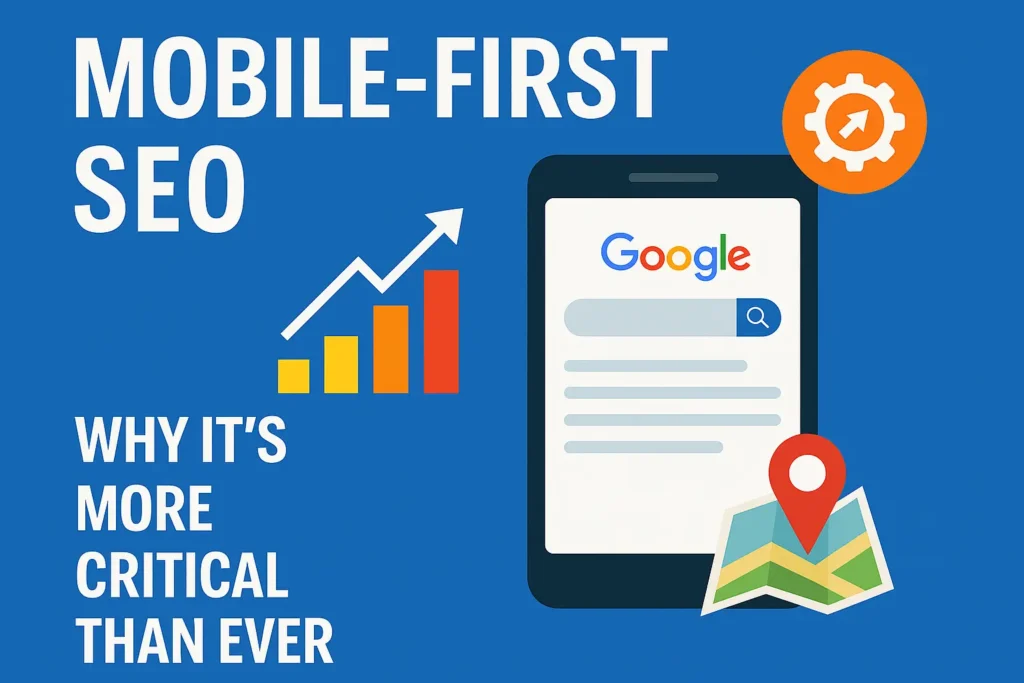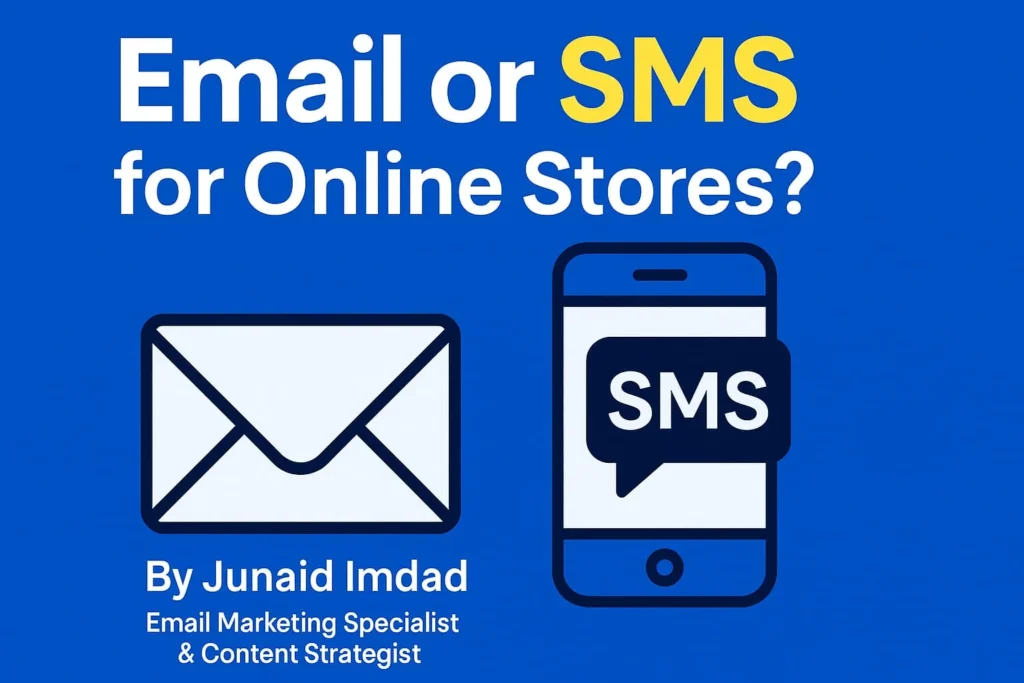Best Free SEO Tools for Startups in 2025
By Junaid Imdad, Blogger & Digital Experience Strategist
Launching a startup in 2025 is both thrilling and daunting. On one hand, AI-driven marketing, automation tools, and global platforms make it easier than ever to reach audiences. On the other hand, competition is fierce—every niche is crowded with players big and small, all fighting for attention.
That’s why visibility is everything. It doesn’t matter how groundbreaking your app is, how unique your service is, or how eco-friendly your product is—if your target audience can’t find you online, you’ll struggle to grow.
Enter SEO (Search Engine Optimization).
SEO is the long-term engine that fuels growth. It ensures that when people search for solutions like yours, your website shows up. And the beauty of SEO for startups is this: you don’t need huge ad budgets to win—you just need consistency, creativity, and the right tools.
The best part? Many of these tools are free. In fact, free SEO tools in 2025 are more powerful than many paid tools from five years ago. If you’re resourceful, you can grow your startup’s visibility without spending a single penny on software.
In this blog, I’ll walk you through the best free SEO tools for startups in 2025, explain how they work, share industry-specific use cases, and give you tips to get the most out of them.
Whether you’re building a SaaS product, an eCommerce brand, a service business, or a local startup, this guide will help you get discovered.
Why Startups Can’t Ignore SEO in 2025
Before we get into the list of tools, let’s pause. Why is SEO such a critical growth lever for startups right now?
1. Budget Constraints
Startups don’t have the luxury of huge marketing budgets. Paid ads are quick but costly. If you’re spending £2,000 on ads each month, once you stop paying, your traffic stops too. SEO, by contrast, is an upfront investment of time and energy—but the results are long-lasting.
2. Long-Term Scalability
Unlike ads, SEO compounds. A blog you publish today can still bring traffic two years from now. Think of SEO as planting a forest. Paid ads are like buying firewood—you burn through it fast and it’s gone.
3. Building Trust & Authority
Consumers trust Google’s organic rankings more than ads. If your startup shows up naturally on page 1, it signals credibility. For a brand-new business, that trust factor can make or break conversions.
4. Competing in a Saturated Market
By 2025, nearly every industry is digital-first. Whether you’re selling artisanal candles or AI-driven SaaS, you’re competing with hundreds of others. Early SEO investment ensures you’re not drowned out by bigger players.
Think of SEO as your secret weapon. It levels the playing field, allowing startups to compete with established companies without massive budgets.
Best Free SEO Tools for Startups in 2025
Let’s break down the top 10 free SEO tools every startup should consider, along with practical examples and how to get the most out of them.
1. Google Search Console (GSC) – Your SEO Command Center
If your website were a car, Google Search Console would be your dashboard. It’s the most important free SEO tool you can use because it comes directly from Google.
Why it matters for startups:
- See exactly which search queries bring users to your website.
- Monitor clicks, impressions, and average rankings.
- Identify and fix indexing errors (pages not showing in search).
- Track how different pages perform over time.
How startups can use it:
- eCommerce startup: Use GSC to identify product pages ranking on page 2. Optimize titles and add FAQs to push them to page 1.
- Local service startup: Check the “Performance” report to see local search queries (“plumber in Manchester”) and optimize for those.
- SaaS startup: Use query data to understand user intent (“best project management tool for startups”) and create blog posts targeting them.
Step-by-step:
- Verify your website in GSC.
- Go to the Performance tab → filter by “average position.”
- Identify keywords where you rank 11–20.
- Update content with stronger headlines, FAQs, and internal links.
Pro Tip: Regularly check the “Coverage” tab. Fixing crawl errors can sometimes give you an instant traffic boost. Regularly check the “Coverage” tab. Fixing crawl errors can sometimes give you an instant traffic boost. Want deeper insights? Read our guide on Optimizing Your Website to Attract More Traffic.

2. Google Analytics 4 (GA4) – Understanding Visitors in Depth
Launched fully in 2023, GA4 is designed for the modern, multi-device world. It doesn’t just show traffic—it shows behavior.
Why startups need it:
- Understand where your traffic comes from (organic, social, referral, ads).
- See which pages users engage with most.
- Track conversions like demo requests, purchases, or newsletter signups.
- Analyze audience demographics (location, device, interests).
Use cases by industry:
- SaaS startup: Track which content drives the most trial signups.
- D2C eCommerce brand: See whether desktop or mobile drives more sales.
- B2B consultancy: Monitor which case studies keep users engaged longest.
Example: A UK-based SaaS startup discovered that 70% of their visitors used mobile devices, but their mobile site was slow. After optimizing speed, their conversion rate increased by 30%.
Pro Tip: Don’t just look at traffic numbers. Focus on conversions and engagement metrics. High traffic with low conversions means you’re targeting the wrong audience. Don’t just look at traffic. Focus on conversions. We’ve shared similar strategies in Gamification in SEO 2025.

3. Ahrefs Webmaster Tools (AWT) – Backlink & SEO Health
Ahrefs is known as one of the most powerful SEO platforms, and while the paid version is pricey, their Webmaster Tools are free for verified site owners.
What you get:
- Backlink analysis: who links to your site.
- SEO audit: broken links, duplicate content, missing tags.
- Keyword tracking: see how your rankings change.
Why backlinks matter:
Backlinks are like online votes of confidence. The more reputable sites linking to you, the more Google trusts you.
Startup example: A digital agency startup used AWT to see which blogs linked to competitors. They reached out, pitched guest posts, and gained 20 backlinks in two months—boosting their domain authority.
Steps to use:
- Sign up for Ahrefs Webmaster Tools and connect your site.
- Run a Site Audit to find errors.
- Check the Backlinks Report to identify existing links.
- Compare your profile to competitors.
Pro Tip: Use AWT to spot “lost backlinks.” Reach out to webmasters and request re-links—it’s one of the fastest ways to recover authority. Spot “lost backlinks” and recover them. To understand why trust matters online, see our blog on Cybersecurity 2025 Web Protection.

4. Ubersuggest (Free Version) – Keyword & Competitor Insights
Neil Patel’s Ubersuggest is beginner-friendly and great for keyword research.
What it offers:
- Keyword ideas with search volume & difficulty.
- Content ideas based on trending topics.
- Competitor analysis for traffic sources.
How startups can use it:
- Fitness app: Discover long-tail keywords like “AI workout app for beginners.”
- Ecommerce brand: Find trending searches like “eco-friendly water bottles UK.”
- B2B startup: Explore niche terms like “cloud ERP for small business.”
Step-by-step:
- Enter a seed keyword (e.g., “startup SEO tools”).
- Check related keyword ideas.
- Filter for low-competition, long-tail queries.
- Create blog posts or landing pages targeting them.
Pro Tip: The “Content Ideas” tab shows what’s already ranking. Don’t copy—create something more detailed and useful. Use the Content Ideas tab for trending topics. If you’re curious about content engagement strategies, check our article on Email vs SMS Marketing.

5. SEMrush Free Plan – Competitor Benchmarking
SEMrush is another heavyweight tool with a strong free tier.
What you get free:
- See a competitor’s top organic keywords.
- Audit your site for technical issues.
- Track a limited number of keywords.
Startup use case: A fintech startup used SEMrush to analyze what their top competitors ranked for. They noticed competitors had blog posts on “UK tax calculator for startups” but with weak content. They created a detailed guide and outranked them.
Pro Tip: Don’t just copy competitors. Look for “content gaps”—keywords they rank for but don’t cover in detail.
6. Moz Link Explorer – Domain Authority & Link Insights
Moz remains one of the most trusted SEO platforms.
What you can do for free:
- Check your Domain Authority (DA).
- See who links to you.
- Compare your backlink profile with competitors.
Why it matters for startups:
DA isn’t an official Google metric, but it helps gauge your progress. If you start at DA 5 and build to DA 30 within a year, you know your authority is growing.
Pro Tip: Use Moz’s “Spam Score” to check backlinks. If you spot toxic links, disavow them to protect your site’s reputation.
7. AnswerThePublic – Content Idea Goldmine
This tool shows real questions people ask on Google.
Why startups should use it:
- Provides fresh blog topic ideas.
- Helps create content that matches user intent.
- Great for building FAQ sections.
Example: A SaaS founder searched “AI CRM software” and found questions like:
- “What is the best AI CRM for small business?”
- “Can AI replace human sales reps?”
They turned these into blog posts and saw a 40% traffic lift.
Pro Tip: Export your keyword map from AnswerThePublic and turn it into a content calendar for 3 months of blog posts.
8. Yoast SEO (WordPress Plugin) – On-Page Optimization
If your startup website runs on WordPress, Yoast is a must.
Free features:
- Meta title & description editor.
- Keyword usage tips.
- Readability analysis.
- XML sitemap generation.
Startup benefit: It acts like a mini SEO coach, helping even beginners create search-friendly content.
Pro Tip: Don’t blindly follow the green light system. Focus on natural writing and user value while applying Yoast’s suggestions.
9. Screaming Frog SEO Spider – Technical Health Check
A must-have for spotting issues Google might penalize.
Free features (500 URLs):
- Finds broken links.
- Detects duplicate content.
- Shows missing meta tags.
Startup use case: A DTC brand used Screaming Frog to find dozens of 404 errors after a site migration. Fixing them prevented ranking drops.
Pro Tip: Run a crawl monthly. Even small errors (like duplicate H1s) can add up and hurt rankings over time.
10. Canva – Visual SEO & Engagement
SEO isn’t just text. Engaging visuals boost time-on-page and shareability.
Why Canva helps startups:
- Create blog images, infographics, and social media graphics.
- Infographics often earn backlinks.
- Consistent visuals build brand authority.
Example: A green-tech startup published an infographic on “How Solar Panels Save Costs in 2025.” It went viral on LinkedIn and earned 50 backlinks.
Pro Tip: Always brand your visuals (logo, URL). That way, even if others share them, you still get recognition.
How to Choose the Right SEO Tool
If you’re overwhelmed, here’s a phased roadmap:
- Phase 1: Tracking & Setup → Google Search Console, GA4, Yoast.
- Phase 2: Keyword Research → Ubersuggest, AnswerThePublic.
- Phase 3: Competitor & Backlinks → SEMrush, Ahrefs, Moz.
- Phase 4: Technical → Screaming Frog.
- Phase 5: Engagement → Canva.
Common SEO Mistakes Startups Make
- Relying too much on tools and ignoring strategy.
- Over-optimizing content (keyword stuffing).
- Ignoring mobile speed and UX.
- Not tracking conversions.
Bonus Section: Free vs Paid Tools – Should Startups Upgrade?
Free tools are enough to get you to your first 5–10k monthly visitors. But as you scale, you might want premium tools for:
- Deeper keyword tracking.
- Competitor content insights.
- Automated reporting.
My advice: Stick to free tools until you hit £20–30k MRR, then consider upgrading.
Future of SEO Tools in 2025 & Beyond
Looking ahead, SEO tools are evolving fast. Expect:
- AI-powered content optimization (real-time suggestions).
- Voice search optimization as more users search via Alexa & Siri.
- Visual search growth (Google Lens, Pinterest).
- Predictive analytics showing where your traffic could grow.
Startups that embrace these trends early will win big.
Final Thoughts
SEO is no longer optional for startups—it’s survival. The free SEO tools we covered can give you 80% of the results without a budget.
To recap, focus on:
- Google Search Console + GA4 for tracking.
- Ubersuggest + AnswerThePublic for keyword ideas.
- Ahrefs AWT + Moz for backlinks.
- Screaming Frog for health.
- Canva for engagement.
Consistency is key. SEO takes time, but if you start today, six months from now you’ll have steady, compounding traffic that keeps growing without burning cash on ads.
Your startup’s future visibility starts with one step: pick 2 tools from this list, implement them this week, and build momentum from there.
By Junaid Imdad, Blogger & Digital Experience Strategist
Dev IT City LTD. Details
User Profile
- Full name
- Dev IT City LTD.
- Email address
- info@devitcity.com
- Join Date
- 2024-07-28
- State
- City
- Pincode
- Address
- Follow us on Facebook
- Follow us on Twitter
- Website Name
- https://devitcity.com/
- Bio
- Established in 2022, Dev IT City Ltd. offers a comprehensive suite of digital solutions for businesses. We specialize in software development for mobile and web, along with various marketing services, including SEO, social media marketing, and graphic design. With a proven track record of success in the UAE, Malaysia, UK, USA, Philippines, Pakistan, India, Europe and other countries, Dev IT City Ltd. is your trusted partner for achieving digital success. We bridge the gap between marketing strategy and software development. Our team of passionate marketers and skilled developers work together to craft impactful digital experiences that drive results. We don't just talk success, we build it. Join us on this journey as we shape tomorrow's digital experiences, one breakthrough at a time.

